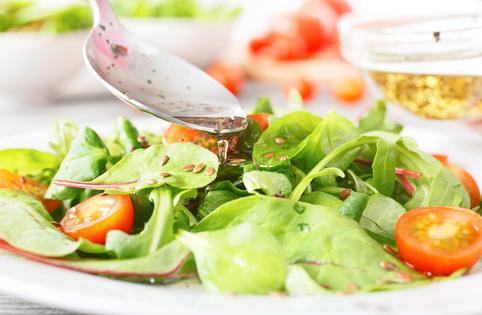Environmental Nutrition: Let’s talk salad dressings
Published in Health & Fitness
It’s no secret that a salad filled with bright, colorful fruits and veggies makes for a delicious start to your meal, or is the meal itself. And you probably know that what we choose to top our salad — think beans, croutons, bacon bits, lean meats, etc. — can impact the health quotient of said salad. But did you realize how important the dressing you choose is to the overall nutritiousness of the salad?
Salad dressings are fantastic for adding interesting flavors to your raw veggies, but they do more than that. Dressings add extra calories, saturated fat, sodium, and added sugar to your salad bowl. For this reason, it’s important to make informed choices when selecting your dressing and not go overboard as you pour.
But what dressings provide isn’t all negative. Depending on the ingredients used, dressings can be a good source of healthy fats in your day. Those healthy fats actually help make your salad better for you. Many of the commonly-used salad veggies contain fat-soluble vitamins (A, D, E, K). These vitamins need to be eaten with fat to get the best absorption. Choose dressings with olive, canola, avocado and other healthy oils as their base to maximize the vitamins and therefore health benefits you can gain from your salad bowl.
Helpful hints: Keep in mind the benefits salad dressing can provide the next time you’re choosing one.
(Reprinted with permission from Environmental Nutrition, a monthly publication of Belvoir Media Group, LLC. 800-829-5384. www.EnvironmentalNutrition.com.)
©2024 Belvoir Media Group. Distributed by Tribune Content Agency, LLC.










Comments